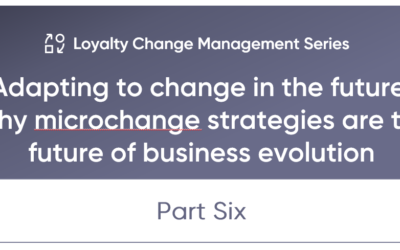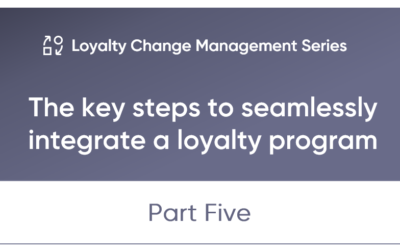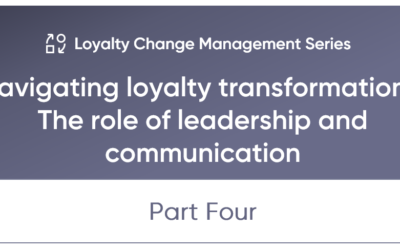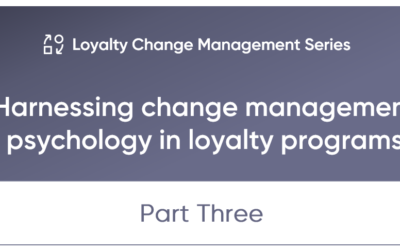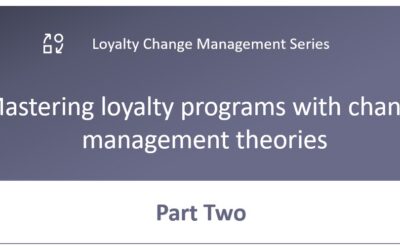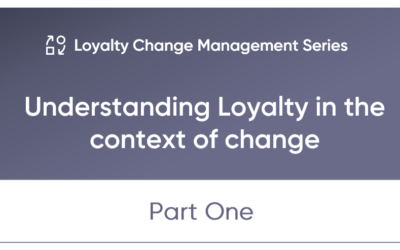Cool move by FIFA to launch a FIFA REWARDS for fans. It’s something many of us probably thought should exist, and now it’s finally here. It’s currently in beta...
All the loyalty insights from our expert team.
Part 6: Adapting to change in the future: Why microchange strategies are the future of business evolution
Emerging trends in change management have highlighted the significance of microchange strategies, which focus on small, orchestrated changes to drive larger,...
Part 5: The key steps to seamlessly integrate a loyalty program
Implementing a successful loyalty program can be a game-changer for organisations looking to enhance customer engagement and brand loyalty. However, driving change...
Part 4: Navigating loyalty transformations: The role of leadership and communication
Transforming a company's loyalty program is a multifaceted endeavour that requires strategic planning, robust communication, and the right leadership to ensure...
Part 3: Harnessing change management psychology in loyalty programs
Change management psychology is essential when introducing loyalty programs, as it revolves around understanding and influencing human behaviours, emotions, and...
Part 2: Mastering loyalty programs with change management theories
In a world where customer loyalty can make or break a business, organisations continuously seek new ways to engage and retain their clientele. Loyalty programs,...
Part 1: Understanding loyalty in the context of change
Businesses – good businesses – are always looking to evolve. This may be due to technology, customer needs, competitive advantage etc. One key facet that has...
Chipotle Strava Challenge Sparks Record-Breaking Fitness Rush
The Chipotle Strava Challenge has achieved an extraordinary milestone as participants logged over 9.25 million miles on designated segments - equivalent...
What Survivor Can Teach Us About Customer Retention
The cutthroat world of Australian Survivor is currently airing with the second iteration of Brains v Brawn. There is so many reasons why Survivor is my favourite...
M&M Launches first-ever loyalty program with Times Square sleepover prize
M&M's loyalty program launches with an extraordinary prize - a once-in-a-lifetime sleepover at their 25,000 square-foot Times Square flagship store...
Attitudinal Loyalty: The Psychology Behind Customer Relationships
Customer loyalty presents a fascinating paradox. 75% of consumers declare brand loyalty, yet only 25% show consistent loyal purchasing behavior. The gap between...
Why Every Smart Shopper Needs a Suki Card
“Suki” is a Tagalog word that means “loyal,” and in the Philippines, buyers are often called by this term. I remember when I was a teenager, I never paid much...


